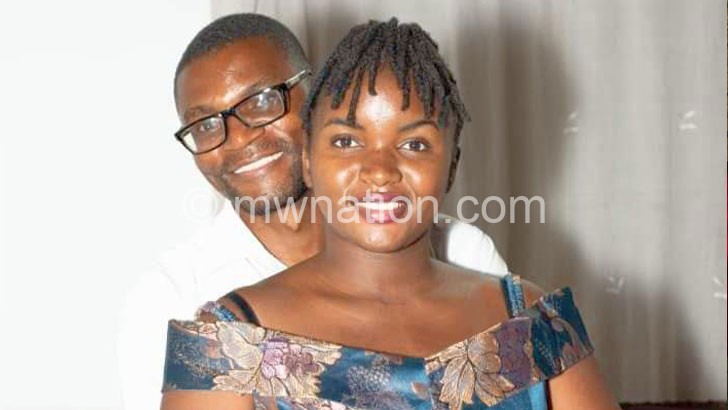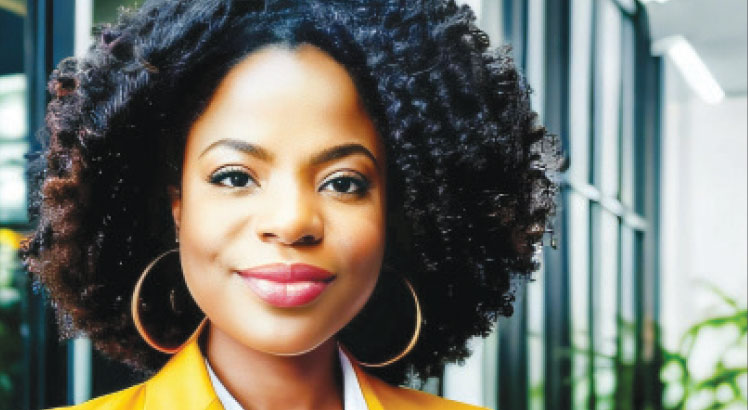Eshter mkhutche: gender and protection coordinator
Esther Harawa-Mkhutche is a gender protection coordinator who has led the rescue of 25 girls from teen and forced marriages. She has also helped victims of gender-based violence. She works for the Foundation for Civic Education and Social Education (Focese) and also doubles as an advocacy coordinator with Alliance for Sexual and Reproductive Heath Rights (SRHR) organisations in Malawi. Esther had a chat with MIKE VAN KAMANDE.

Who is Esther?
I was born in Rumphi on October 2 1995 and I am the first born in a step family of seven, three boys and four girls. I grew up in Mzuzu. I went to Bandawe Primary School up to 2008 before I went to Bandawe Girls Secondary School in Nkhata Bay.
I graduated with Bachelor of Arts (Humanities) in Drama and Philosophy from Chancellor College. Presently, I am studying for a Master of Arts in Theater and Media Communications in Development.
I am married to Wonderful Mkhutche and together we have a four-year-old daughter, Malaika.
What was your upbringing like?
In 2005 when I was only 10 years old, I lost my mother and went to Luwinga, Mzuzu where I grew up with my father and stepmother. Life was not easy for my father to provide for the family, but he tried and I was able to get to college.
He was a constant presence and inspiration in my life until we lost him in a car accident in November 2018. As the first born, my father would always say that I am also a parent to my siblings and this made me grow with the responsibility of looking after them. In addition, my father always believed in me and this inspired the spirit of hard work in me. Although no longer with us today, I can proudly say that what is best in me I owe it to him.
Who is a gender and protection coordinator?
A gender and protection officer works towards achieving gender equality between women, men, girls and boys making sure everyone is protected. She/he leads in planning, implementation and monitoring of gender mainstreaming and protection project activities. Again, she/he also provides strategic direction, leadership and overall technical and management assistance to integrated gender and age responsive protection programming.
How has your career been?
I do not remember deciding to be in drama and theatre while growing up. But I would take part in church and school plays. While at college, I used to do field works as Theatre for Development Troop member and facilitator with organisations such as Creative Centre for Community Mobilisation (Creccom), Art and Global Health Centre Africa (AGHCA) and Applied Development Communication and Training Services (Adecots). When in my third and fourth years, I was also asked by Fine and Performing Arts Department to be tutor for first and second-year students in Malawian Music and Theatre for Development at the college.
In early 2019 I took up a job as part-time lecturer in Drama Practice and Theatre for Development at Malawi Assemblies of God University in Lilongwe while working with Office of Ombudsman as a hospital ombudsman. Soon after that, I took up my present job with Focese.
What are some of your career highlights?
Through my work with Focese, we have rescued over 25 girls from child marriages and helped them back to school. This was possible because we worked together with volunteers, traditional chiefs, police and the judiciary.
Furthermore, through our coordinated work, we have brought perpetrators of rape, incest and child marriages to justice.
I attended training in Effective Feminist Advocacy by the African Women Development Fund (AWDF) in Accra, Ghana, November 2019. From the training, I gained new knowledge, insight and skills on how to effectively advocate for the rights of girls and women. As a result, I have recently been using television, radio, social media and newspapers to highlight issues affecting girls and women in Malawi.
What inspired you to work as gender and protection coordinator?
Inequalities and injustices in our society affect women and girls. Our culture as well as religion has positioned females as lesser beings to males. In many homes, women are raised for marriage. At church, women are denied some positions not because they cannot perform, but because of their gender. This view has left girls and women susceptible to rape, marginalisation and early marriages. It is through such experiences that my interest in advocating for better opportunities for girls and women grew.
Thus working as gender and protection coordinator is an epitome of the kind of world I would like for girls and women. But let me also recognise inspiration from Dr. Catherine Makhumula of Chanco, Mercy Simbi of Adecots, Christie Banda, Focese executive director, Rose Chunda of Creccom and Habiba Osman of UN Women.
What are some challenges you face?
Generally, people have wrong perception towards gender activists. Calling for gender equality is seen as a deconstruction of the society by most people. They believe that the inequalities we have between men and women are natural or divine. As such, when a young woman like me is pursuing such objectives, they are considered naïve and unruly.
There are also issues of contraceptives and other sexual reproductive health rights (SRHR) especially for girls. I believe that girls should have access to these. But this position meets with a society that believes otherwise and it becomes a challenge. As a young woman, I cannot emphasize enough the need to change how we view SRHR in the lives of girls and women.
What makes you excel?
I was raised to value independence of mind in me and others. My job deals with controversial issues in most cases, but I understand the society we are in. This is the knowledge that keeps me going. In addition, I also have a great circle of influence and support system. My husband is also my cheerleader who tells me we only have one life and we need to make most of it by reaching our full potential. Through this, I feel empowered to pursue and achieve more.



